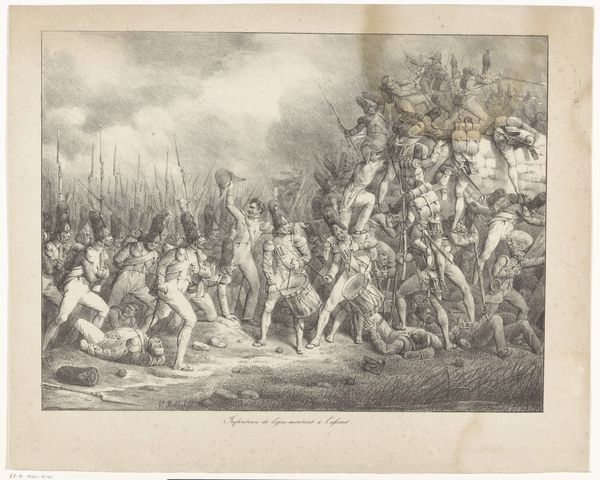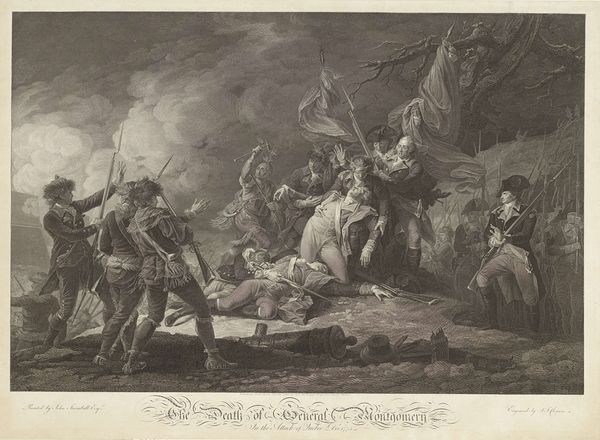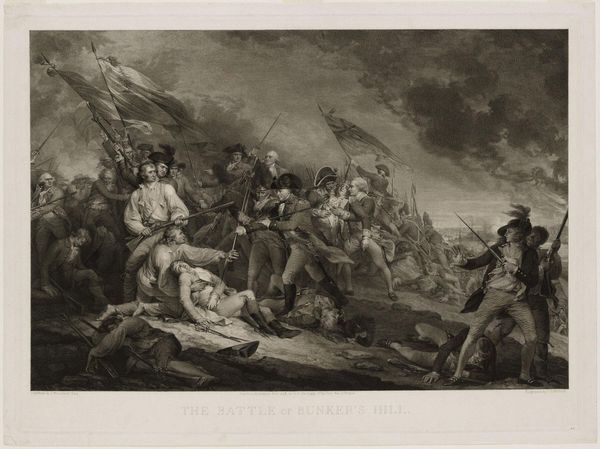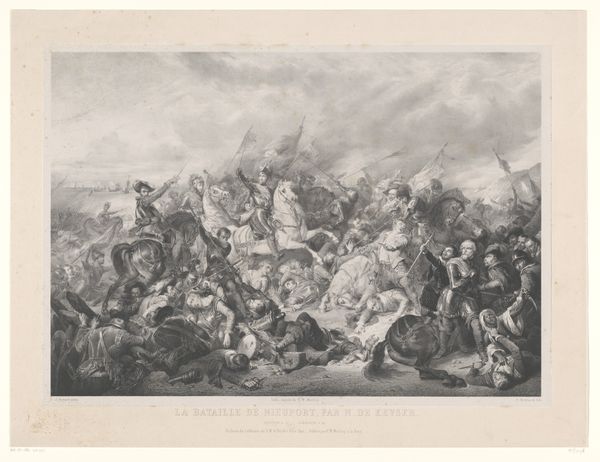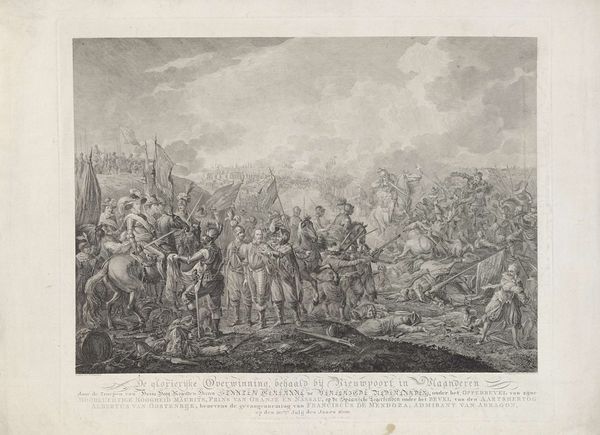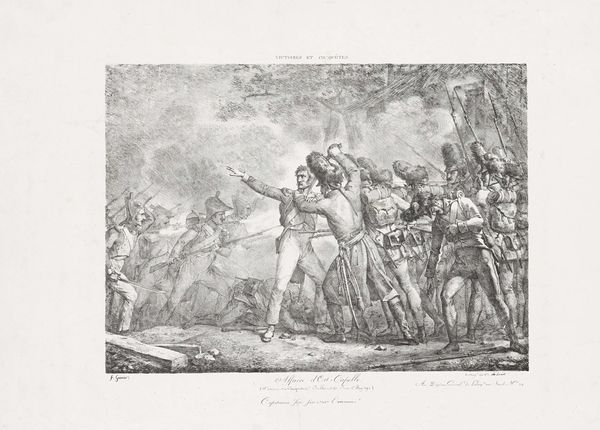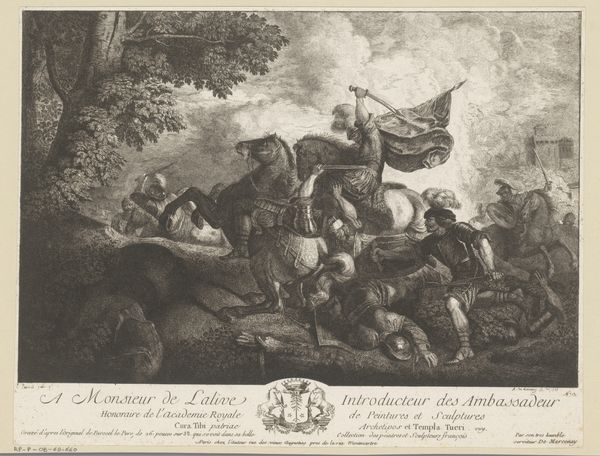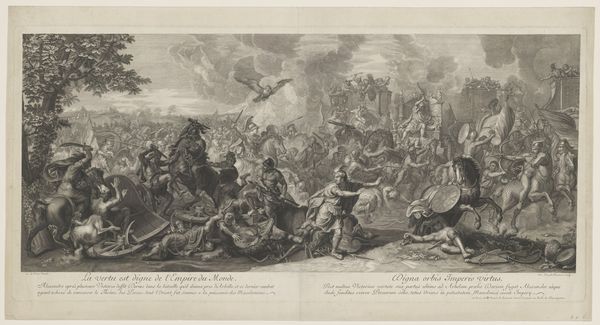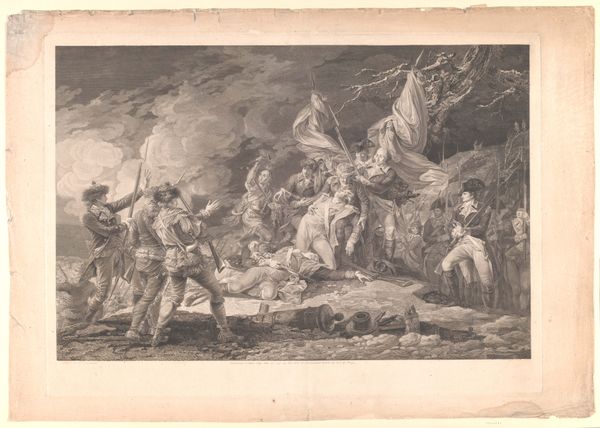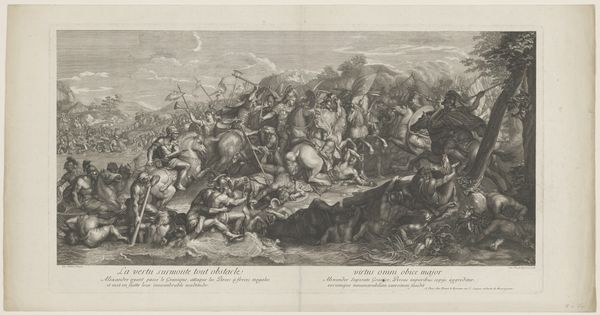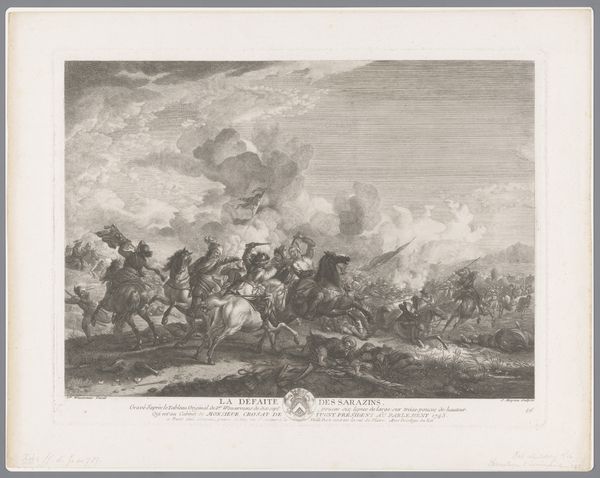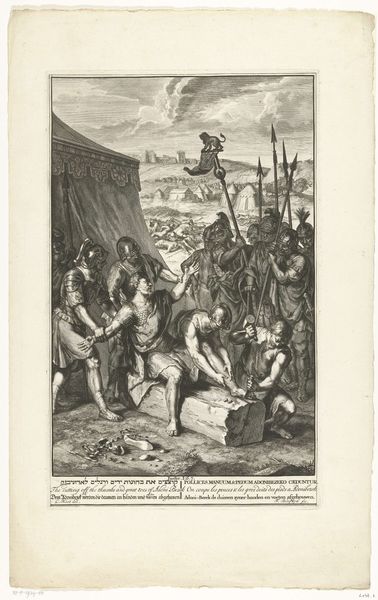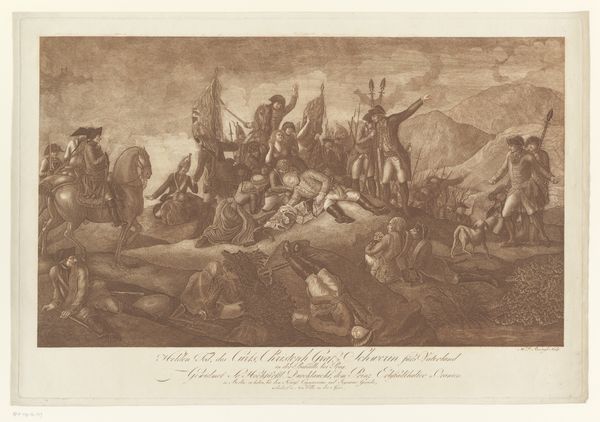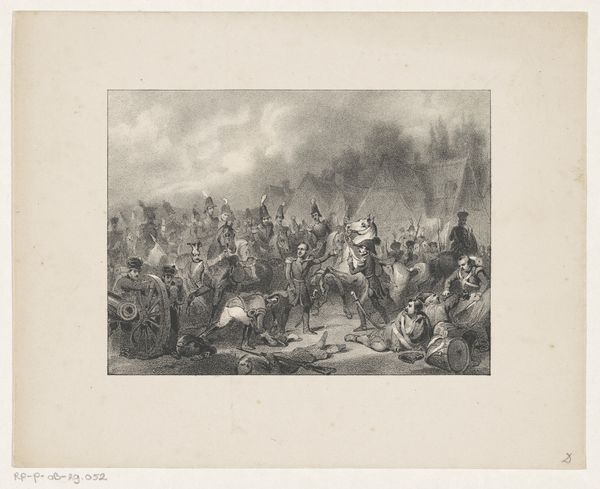
print, engraving
#
narrative-art
# print
#
old engraving style
#
romanticism
#
history-painting
#
academic-art
#
engraving
#
monochrome
Dimensions: height 422 mm, width 578 mm
Copyright: Rijks Museum: Open Domain
Editor: Right now, we're looking at "Slag bij Ayacucho, 1824", or "Battle of Ayacucho" by Auguste Raffet, created sometime between 1825 and 1826. It’s an engraving. It has this really dramatic, swirling feel to it. All these figures caught in the chaos. What strikes you most when you look at it? Curator: Ah, the chaos is brilliantly captured, isn't it? Raffet really evokes that romanticism, but beyond the visible drama, I'm drawn to the *idea* of it all. Ayacucho was the decisive battle in the Peruvian War of Independence. Just think about the weight of that moment. Editor: Independence…So there's like, historical significance layered in there? Curator: Absolutely! Raffet isn't just showing a fight. He’s depicting a birth of sorts. He invites us to reflect on liberation, but he also uses a certain visual language… Look how he composes the scene, the use of light and dark to guide the viewer's eye. Is there anything in particular that grabs your eye when you're tracing that visual language? Editor: Hmm, maybe the fallen figures? There are a couple of soldiers and even a horse lying prone near the middle ground, drawing my focus to them Curator: Precisely. The fallen underscore the human cost and the overall gravitas of revolution. Think too about the Romantic era's fascination with heroism *and* suffering. It's all tied together. Editor: I guess it really hits home, knowing this wasn’t just a battle, but a *decisive* one for an entire country’s independence. Seeing those figures adds another dimension to my understanding. Curator: Right? Historical weight makes every stroke of the engraving vibrate a little more, don't you think? History brought to life.
Comments
No comments
Be the first to comment and join the conversation on the ultimate creative platform.
